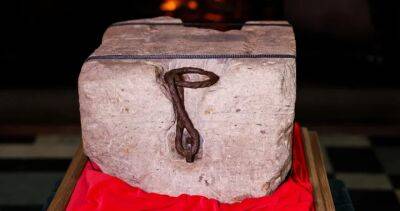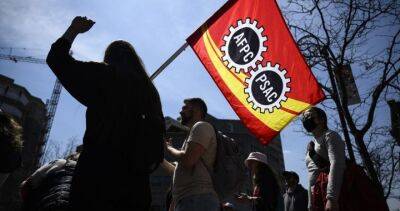Requirement for facemask use in hospitals relaxed from 19 April
The universal use of facemasks in hospitals and other healthcare settings, to curb the spread of Covid-19, is to be relaxed from later this month.
The mandatory use of the personal protective equipment in healthcare settings was introduced during the pandemic as part of infection prevention and control measures.
The decision to remove the requirement is contained in new public health guidance from the Health Protection Surveillance Centre, which will come into effect from 19 April.
From that date, the HPSC says "outside of periods of high levels of community transmission" it will be appropriate to move away from universal use of masks for healthcare workers, patients and visitors in healthcare settings.




























